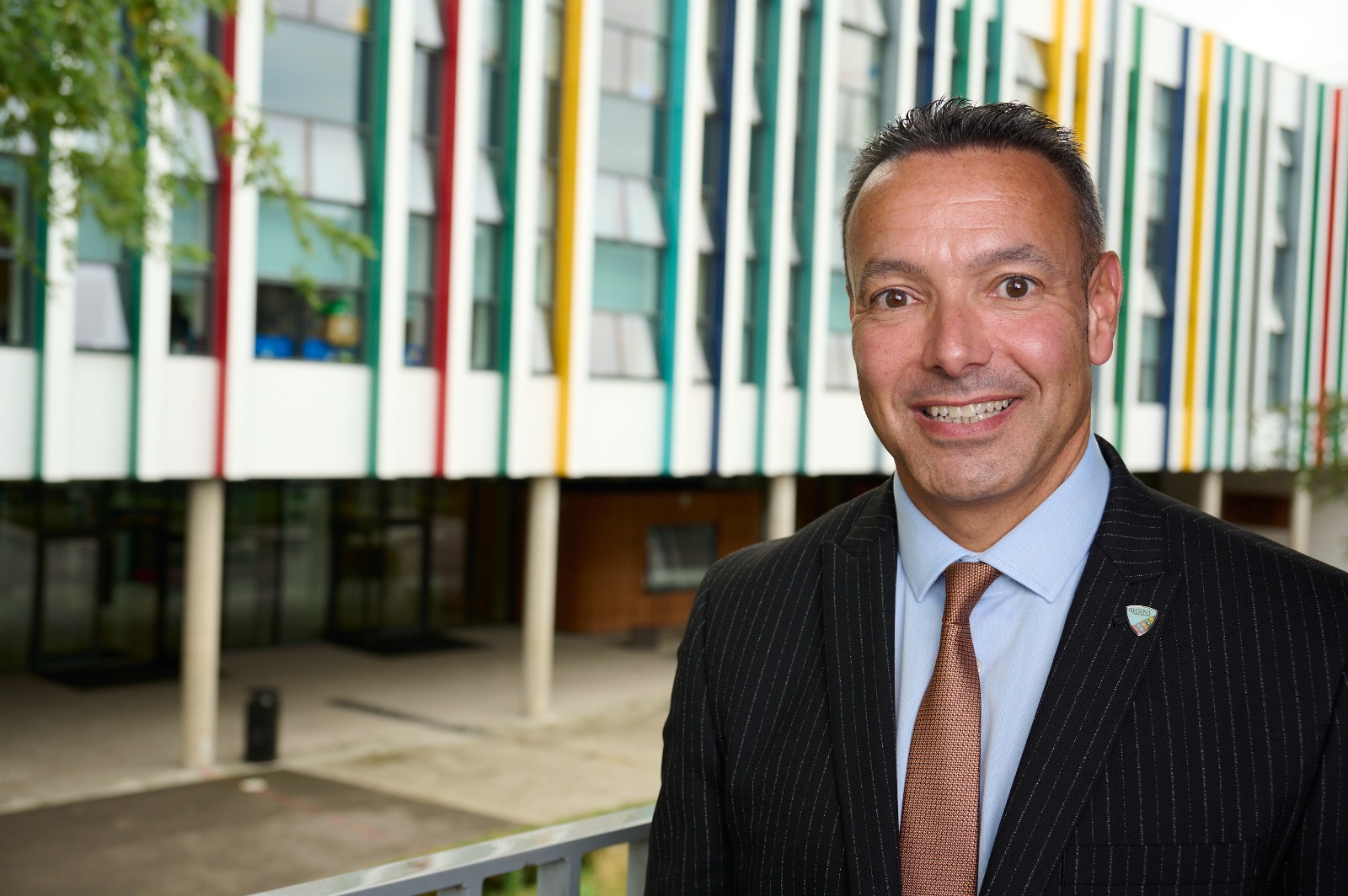Squeezed schools will be ‘paying bill for Covid for a decade'
£285-a-day supply teacher spending has crushed the finances
Thursday, 20th January 2022 — By Harry Taylor

Gary Moore at Regent High School
SCHOOLS could be paying the costs of emergency Covid staffing for the next decade, according to a headteacher.
Gary Moore, head at Regent High School in Somers Town, said that, like others, he has had to take on more supply teachers than under normal circumstances due to absences caused by the Omicron variant.
A total of 22 staff were off school ill on one day last week, meaning members of its senior leadership team (SLT) had to cover colleagues’ lessons and eight supply teachers were brought in – at a cost of up to £280 a day.
Mr Moore, who has been head at Regent High for five-and-a-half years, said: “Schools, including mine, will be paying the costs of this for a decade.
“Costs for masks, hand sanitiser, cleaning fluid, fine – and the [Department for Education] has been good for that – but it’s been staff absences that’s been the biggest cost.”
He added: “I will do everything I can to make sure that their quality of education is not affected, but budgets will be squeezed like never before as a result of the staff costs of the pandemic. It’s been a seller’s market – it’s simple supply and demand.
“If I’m not prepared to pay £275, let’s say, then another school will snap them up. If the DfE want to reimburse us, then we’d obviously welcome that. It would be so simple to work out – we’ve got receipts, we’ve got details that we could submit to show how much we’ve paid.”
Secondary schools are already under pressure in Camden, with some concerned about falling pupil numbers, which in turn leads to less funding.
Some have had reorganisations of staff or cut intakes as a measure to deal with the drop in pupils on their roll.
Regent High introduced a series of measures in December to stem the spread of Omicron.
Trips and assemblies were cancelled, end-of-year concerts went online, break times were staggered, non-essential visitors had to dial in through Zoom, and mask-wearing was introduced before being made compulsory by the government.
“We went hard early when Omicron came along,” Mr Moore said
“Anything we could do, we did, because my priority has always been protecting teaching and learning. We did not want to have to send pupils home again.” One concern at many schools has been the potential for disruption to exams again.
Kateryna Law, headteacher at Camden School for Girls, said: “We’ve had to have an exam contingency in place in case they get called off again.
“So when our pupils have sat their mocks, they have the pressure that their marks could be used for real – and that’s been difficult for them when they haven’t been as used to sitting exams in the last two years. So that has been really hard on them mentally, and we’ve been helping them cope with that stress.”
A Department for Education spokesperson said: “We recognise schools may be facing cost pressures this winter, which is why we have extended the Covid workforce fund to support schools facing staffing and funding pressures.
“In 2022-23, core schools funding will increase by £4bn compared to 2021-22; a 5 per cent real terms per pupil boost. This additional funding will provide support to schools to meet wider cost pressures, including those from supply teachers. In addition, all schools can access a range of school resource management tools to help them get the best value from their resources.”